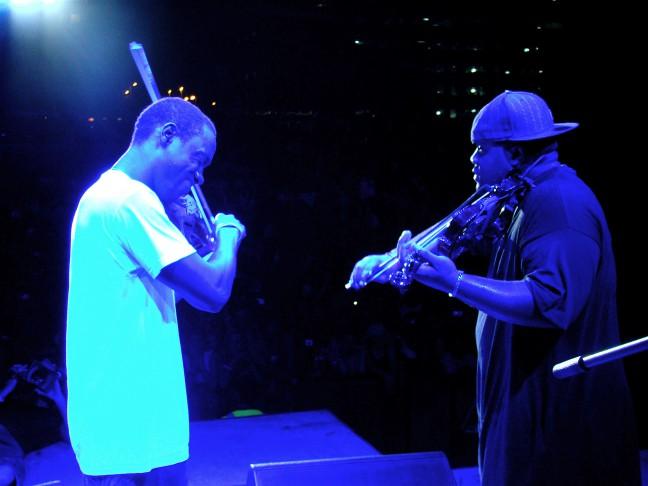Social activism has always been deeply rooted in the messages of hip-hop artists, but this year it’s come to the forefront. First it was D’Angelo, then it was Kendrick and now it’s Black Violin with their album Stereotypes.
The duo, consisting of string instrumentalists Kevin Sylvester and Wilner Baptiste, spread their messages of social reform by breaking stereotypes — where most expect rap, they play violins.
Black Violin enlisted the work of some notorious hip-hop social advocates: MC Pharoahe Monch, jazz pianist Robert Glasper and Black Thought of The Roots. Earlier this year, Questlove of The Roots made a call to action for protest music, which is exactly what Black Thought has helped accomplish in this album.
Through discussing the hypocrisies of politicians and addressing ongoing social movements, this album takes its activism out into the open for everyone to understand.
In “Invisible,” politically outspoken Pharoahe Monch sums up the album’s concept in one line: “Although the lyrics are transparent, I am not invisible.” His quote helps address how to fight institutional racism simply by speaking out.
The album also helps identify often unnoticed instances of stereotyping. In an interview with NPR, Sylvester recounted a conversation with a woman in an elevator. She couldn’t believe he was a classically trained violinist.
It’s moments like these Sylvester said are the basis for the album. He said the woman may not have been directly racist, but still projected how African American discrimination has imbedded itself into the culture.
If there is one thing listeners can truly take away from “Stereotypes,” it’s that actions speak louder than words. The subtleties and softness of their classical performances can be misconstrued as quiet protest, but the action of their strings is how Black Violin exhibits their own form of social demonstration.


